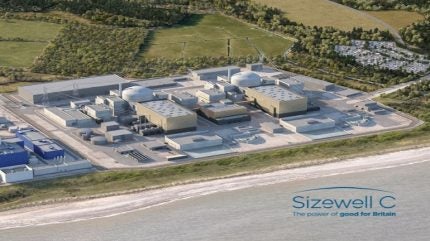
A series of planning reforms are to be introduced by the UK government in a bid to drive new nuclear development with SMRs at the forefront of the strategy.
In a broad shake up planning rules for nuclear plants, the measures aim to make it easier to build new nuclear capacity across the UK by introducing four key changes. For the first time SMRs will be included in planning rules allowing SMR development beyond the eight licenced sites currently in the UK. In a second measure the existing list of eight sites is to be scrapped, opening up the possibility of new nuclear plants being built anywhere across England and Wales – Scotland has devolved powers. The proposals will also remove the current expiry date provisions on nuclear planning meaning projects don’t get timed out and industry can make longer-term plans for development. Finally, a Nuclear Regulatory Taskforce is to be established that will report directly to Prime Minister Sir Keir Starmer. According to the government, this body will spearhead improvements to the regulatory framework to help more companies build plants in the UK, leading on making sure nuclear regulation incentivises investment, to deliver new projects more quickly and cost efficiently, while upholding high safety and security standards. The taskforce will also aim to better align the UK with international partners so reactor designs approved abroad could be green lit more quickly in the UK, minimising expensive changes. It will also examine how to reduce duplication and simplify processes where there are multiple regulators covering overlapping issues, as well as ensuring regulatory decisions are both safe and proportionate.
The refreshed planning framework will, the government says, help streamline the process to encourage investment and enable developers to identify the best sites for their projects, supporting development at a wider range of locations. Developers will be encouraged to bring forward sites as soon as possible at the pre-application stage in the planning process, speeding up overall timelines. It will include new nuclear technologies such as small and advanced modular reactors for the first time, providing flexibility to co-locate them with energy-intensive industrial sites such as data centres.
In a statement the Department for Energy Security and Net Zero (DESNZ) noted: “For too long the country has been mired by delay and obstruction, with a system too happy to label decisions as too difficult, or too long term. The UK was the first country in the world to develop a nuclear reactor, but the last time a nuclear power station was built was back in 1995. None have been built since, leaving the UK lagging behind in a global race to harness cleaner, more affordable energy.” The statement flagged the decision to reform the rules around nuclear as a “refusal to accept the status quo, with the government ripping up archaic rules and saying no to the NIMBYs, to prioritise growth”.
Commenting, Starmer said: “Our energy security has been hostage to Putin for too long, with British prices skyrocketing at his whims. I’m putting an end to it – changing the rules to back the builders of this nation, and saying no to the blockers who have strangled our chances of cheaper energy, growth and jobs for far too long.”
In a statement UK Energy Secretary Ed Miliband said: “Build, build, build – that is what Britain’s clean energy mission is all about. The British people have been left vulnerable to global energy markets for too long – and the only way out is to build our way to a new era of clean electricity. Britain is currently considered one of the world’s most expensive countries in which to build nuclear power. The taskforce will speed up the approval of new reactor designs and streamline how developers engage with regulators. Hinkley Point C is the only nuclear plant currently under construction in the UK.
The news has been broadly welcomed by the industry. Alistair Black, Senior Director, UK, at X-energy said: “Opening up new siting opportunities for a fleet of advanced reactors will help unlock tens of billions of pounds of investment and growth across the country, bringing clean secure electricity and heat for industry.” The Chair of Great British Nuclear, Simon Bowen, said: “By expanding the range of sites where safe, secure, reliable, and clean nuclear energy plants can be built, there is huge potential to positively transform areas facing economic uncertainty. Meanwhile, Chris Conboy, Managing Director, Nuclear EMEA, at AtkinsRéalis said: “We need both large and small nuclear technologies to realise our AI ambitions, bolster our energy security, and enable the sustainable development of towns, cities and industries across the UK: building the right technology in the right locations is vital to power the UK’s growth agenda and meet our net zero goals.” Andy Champ, UK country lead of reactor vendor GE Hitachi also commented, saying: “Establishing and communicating a clear pipeline for future nuclear projects is vital for rapid SMR deployment. The Government has highlighted new nuclear as essential to the UK’s economic growth, energy security and net zero objectives, however, limited site availability has presented a significant barrier to SMR development. Today’s announcement is welcome and sends a positive signal to the market that the UK is serious about developing a fleet of SMRs.”
The Unite trade union also welcomed the announcement, noting that a properly funded nuclear expansion programme will ensure energy resilience, drive forward industrial growth, and provide high-quality employment opportunities across the country. However, the union also argued for action on the Sizewell C nuclear plant proposal saying in a statement: “The nuclear programme must also include the complete go ahead for Sizewell C and that it swiftly followed by other large scale nuclear power plans as well”.






